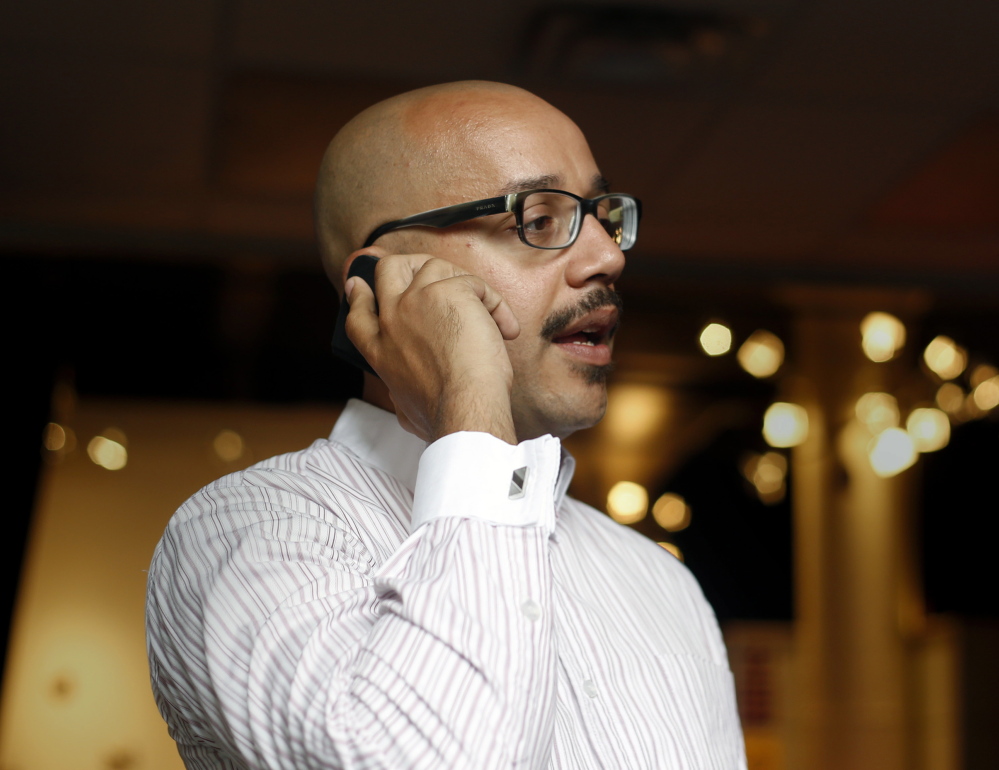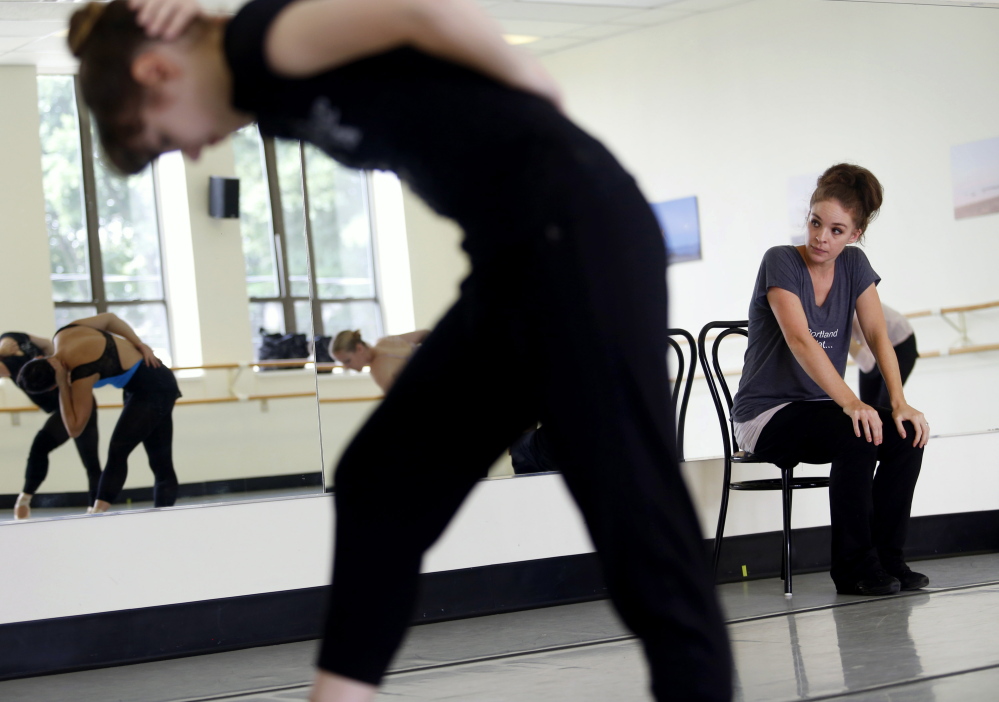Michael Greer became a dancer on doctor’s orders. The newly appointed executive director of Portland Ballet was born pigeon-toed. The family physician suggested to his mom that Greer sign up for ballet to help correct the condition.
He danced for a few years and quit when he was 6 or 7, when his interests turned more to gymnastics. It so happens, the tumbling class was in the same studio as his ballet class. That served him well a few years later “when girls started becoming a little more interesting.”
He signed up again for dance, and it was “me and 13 other girls. I was hooked from that point on.”
But it wasn’t just adolescent curiosities that kept him dancing. Greer had talent. He parlayed his physical abilities and artistic expression into a career. A native of Missouri, he graduated from Interlochen Arts Academy in Michigan and studied with some of the better ballet companies, including the Joffrey Ballet School and Royal Ballet School in England, before enjoying a six-year stint with Ballet West in Salt Lake City.
“But at the ripe old age of 22, I realized this is a profession for the young,” he said. “At some point in life, I’d need a second career.” (He declined to reveal his age but pegged it at “approaching 40.”)
He earned a degree in economics from Hampshire College in Amherst, Massachusetts, and went to work for multinational companies in India and China for nearly a decade. It was in China that he met his wife, and they began a family.
Their children are now almost 5 and 2, and Greer was interested in returning to the United States to raise his family. Based on the example of an artistic director he worked with in Salt Lake City, Greer always kept open the possibility of combining his interest in economics with his background in dance. “People don’t stop being dancers, especially ballet dancers,” he said.
When he learned that Portland Ballet founder and Executive Director Eugenia O’Brien was retiring and her job was open, he applied. He came with his wife to Maine in February – she had never been to United States until then – and quickly fell in love with Portland. He began his job this month.
He understands the delicate nature of taking over an arts organization that has been molded by its founder over 35 years. O’Brien was the face of Portland Ballet, and she left her mark on both the school of students it trains and company of professional dancers who perform publicly. Greer’s job is to secure the legacy of Portland Ballet while expanding its reach and influence in the community.
“The talent that we have here is top-notch. I want to share that with the community of Portland,” he said. “We want more people in the seats, and we want more people to see the good work we are doing.”
That task begins right away. Portland Ballet will audition for its “Victorian Nutcracker” on Sept. 12, and hosts its first fall performance, “Three Tales by Poe,” Oct. 16-17 and Oct. 23-24 in its studio theater.
Contemporary dance is becoming more popular all the time, Greer said, and the company has positioned itself to take advantage of that interest. Artistic Director Nell Shipman has her dancers in great shape, he said, noting that he inherited a healthy organization that is poised for growth. “All the pieces are in place,” he said.
For now, his job is getting to know Portland and the Maine arts community. He’s meeting as many people as he can and telling the Portland Ballet story at every opportunity.
Meanwhile, his family is adjusting to life in America. The transition is enormous, he said, and has been made easier by the supportive Chinese community in southern Maine. Greer’s interview with Portland Ballet occurred during the Chinese New Year, which is celebrated with the Spring Festival. He and his wife were hosted by Chinese families to celebrate. That helped them realize that Portland not only is a diverse city, but also a welcoming one.
The opportunity to converse with people in Chinese and uphold traditions is vital to him and his family. The adjustment for his wife and kids is easier because of it, he said.
It’s hard for people who have lived in the United States all their lives to understand how different life in America is from life in China, he said. “Where we lived in China, we lived in a housing complex that had between 30,000 and 40,000 people, and we move to a city of 65,000,” he said. “You can imagine, that’s taking some getting used to.”
In that context, Portland feels like a small town. So far, they like everything about it. They have an offer in for a house, and Greer’s oldest child is getting ready for school in a pre-K program. They’ve enjoyed walks to the Eastern Prom to look out over the water, and aren’t all that worried about the winter. They saw plenty of snow when they came for 10 days last February.
“Honestly, I didn’t know much about Portland when I applied,” he said. “I went to school in western Massachusetts, and at the time that was the farthest north I’d been. But this is a cute little town. We’re excited to be here.”
Send questions/comments to the editors.





Success. Please wait for the page to reload. If the page does not reload within 5 seconds, please refresh the page.
Enter your email and password to access comments.
Hi, to comment on stories you must . This profile is in addition to your subscription and website login.
Already have a commenting profile? .
Invalid username/password.
Please check your email to confirm and complete your registration.
Only subscribers are eligible to post comments. Please subscribe or login first for digital access. Here’s why.
Use the form below to reset your password. When you've submitted your account email, we will send an email with a reset code.